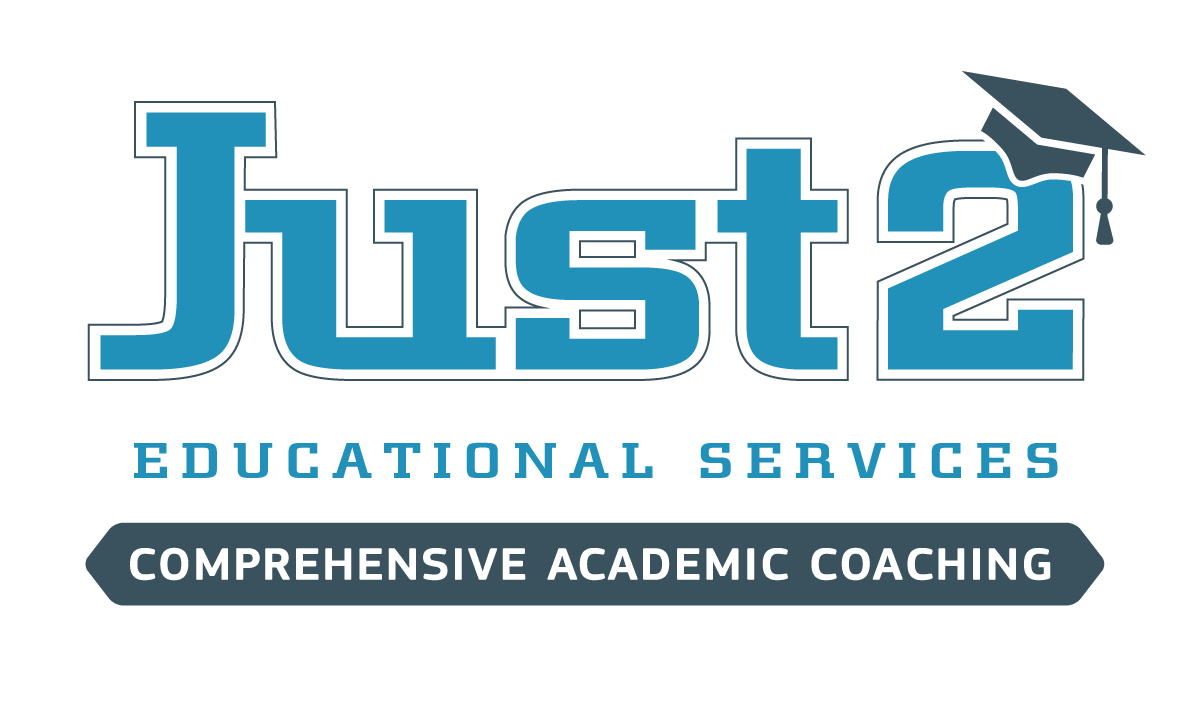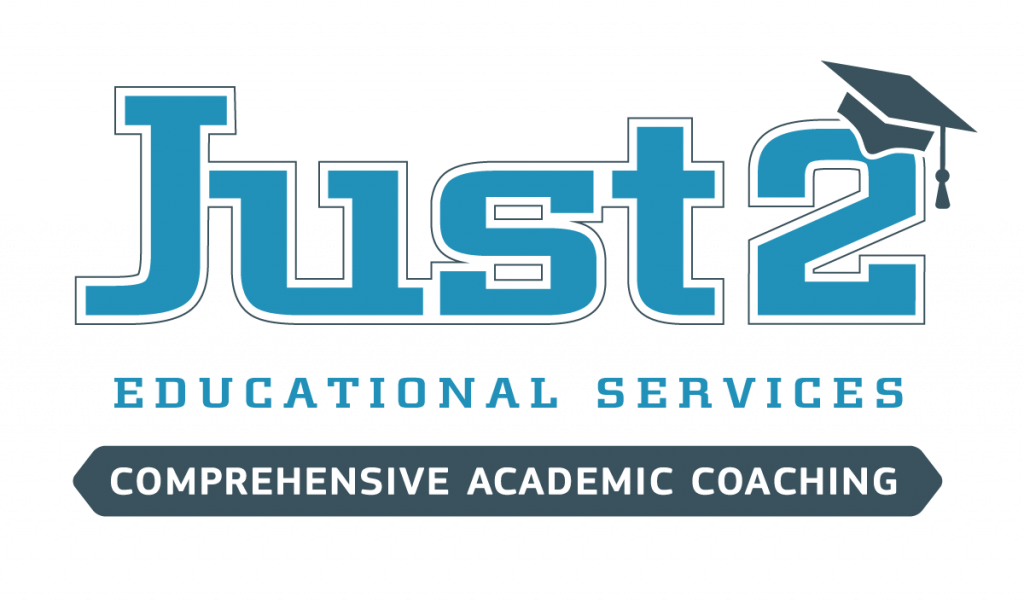 It was early spring when we first moved to the mountains a few years ago. Throughout this and the seasons that followed, we observed our neighbors consistently clearing, building, chopping wood, and repairing. When I asked my next-door neighbor what he was up to one Saturday in June, his response was, “Getting ready for winter”. Now I realize that this kind of talk might conjure some recollections of a popular HBO program and you might roll your eyes while reading the words Winter is Coming.
It was early spring when we first moved to the mountains a few years ago. Throughout this and the seasons that followed, we observed our neighbors consistently clearing, building, chopping wood, and repairing. When I asked my next-door neighbor what he was up to one Saturday in June, his response was, “Getting ready for winter”. Now I realize that this kind of talk might conjure some recollections of a popular HBO program and you might roll your eyes while reading the words Winter is Coming.
I suppose one can’t be too prepared. We recently lived through the tragic loss of lives, homes, property, and security in our own community. While our family was not directly impacted, close friends and colleagues of all of us were. Experiences like these might drive us to action. We might follow the suggestions of organizations like READYColorado to prepare for a stressful situation that we hope will never occur. But do we? Do we prepare for stressful situations either predictable or not?
 Fun fact: Our friend Lucretia, whose home burned to the ground, told us the next day that they (herself and three kids) had less than 3 minutes between the time they spotted the fire in their yard and the time that they pulled the car out of the driveway with walls of flames on either side of their car windows. Fortunately, they made it out.
Fun fact: Our friend Lucretia, whose home burned to the ground, told us the next day that they (herself and three kids) had less than 3 minutes between the time they spotted the fire in their yard and the time that they pulled the car out of the driveway with walls of flames on either side of their car windows. Fortunately, they made it out.
Pretty stressful, right?
The best response to known stressors is to prepare for them. So, it just makes sense to prepare for those more predictable stressful situations and make efforts to diminish this stress because
No Stress Required
 Just2 Tutoring students plan far in advance for what has traditionally been a period of great anxiety: final examinations. Dun-Dun-Dun.
Just2 Tutoring students plan far in advance for what has traditionally been a period of great anxiety: final examinations. Dun-Dun-Dun.
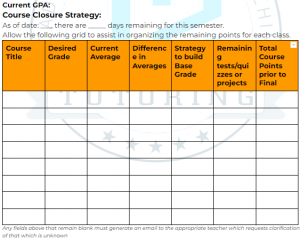 With several semester weeks remaining, students reach out to their teachers by email and during office hours to create an academic forecast. Inquiries are made regarding the number of remaining tests, projects, labs, field trips, or large point assignments. Email communications both clarify expectations and verify previous submissions and close the gap created by delays in grade updates. Moreover, they make every effort to tie up loose ends such as revising a previous effort or completing a missed assessment. These efforts, coupled with quality performance in the remaining coursework, ensure a strong base grade as final exams approach.
With several semester weeks remaining, students reach out to their teachers by email and during office hours to create an academic forecast. Inquiries are made regarding the number of remaining tests, projects, labs, field trips, or large point assignments. Email communications both clarify expectations and verify previous submissions and close the gap created by delays in grade updates. Moreover, they make every effort to tie up loose ends such as revising a previous effort or completing a missed assessment. These efforts, coupled with quality performance in the remaining coursework, ensure a strong base grade as final exams approach.
 When I was a kid, there was no strategy. We just studied, We studied all night and skipped meals, and were excused from our chores. These days we can approach final exams with a sense of calmness and empowerment.
When I was a kid, there was no strategy. We just studied, We studied all night and skipped meals, and were excused from our chores. These days we can approach final exams with a sense of calmness and empowerment.
Planning Requires Structure.
Over the past twenty years, the Just2 Coach Team has developed a tool that guides students through this period of time. We call it the Just2 Finals Preparation and Strategy Sheet. You likely could come up with a better name but we want to be as clear as possible about its intention and function. It is a progressive process that begins with base grade strategies and ends with an individualized finals study plan complete with times dates and activities leading up to each course’s final examination.
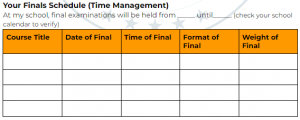 Just2 coaches guide students in identifying and documenting their finals schedule and the assigned weight of each assessment. Most final exams account for 10% of the overall grade. However, it serves students well to verify this.
Just2 coaches guide students in identifying and documenting their finals schedule and the assigned weight of each assessment. Most final exams account for 10% of the overall grade. However, it serves students well to verify this.
Structure Reduces Stress
Our tools provide students with data that informs the appropriate strategy for each course. The preceding weeks provide the time to run solution formulas and determine the impact of specific base grades coupled with the weight of each final exam.
Students then can make observations about both the possibilities and vulnerabilities for their final grades. These observations allow students to prioritize each final. They set an appropriate study strategy and schedule into place.
A Strategic Study Plan
The best part is when students complete the table that shows what they need to earn in order to either maintain or increase their current average. 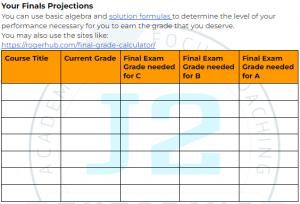 Some students might fall short of an A but be reassured that even a considerably low exam grade will result in a guaranteed B. This informs the overall finals study plan. It provides an opportunity for a more significant focus on a course of higher priority. Students with a strong A grade, class rank strategies aside, can be assured that they will hold their A.
Some students might fall short of an A but be reassured that even a considerably low exam grade will result in a guaranteed B. This informs the overall finals study plan. It provides an opportunity for a more significant focus on a course of higher priority. Students with a strong A grade, class rank strategies aside, can be assured that they will hold their A.
A student with an 89% base grade will discover that they need a mid-range A on the final. Even in these situations, stress and anxiety can be avoided because preparations have been made. Perhaps this student holds 89% as a direct result of efforts to build their base grade. This is worthy of acknowledgment regardless of whether or not the A is attained. In this case, they get to decide with teacher engagement and parent approval whether or not the A is attainable.
This plan is shared with coaches and parents to ensure that support is in place to maintain timelines and commitments. Over the past many years, students and their parents have reported higher performance and lower stress as a result of engaging in Finals Preparation and Strategy.
